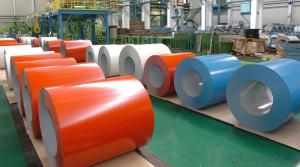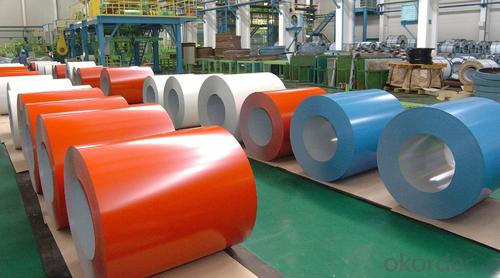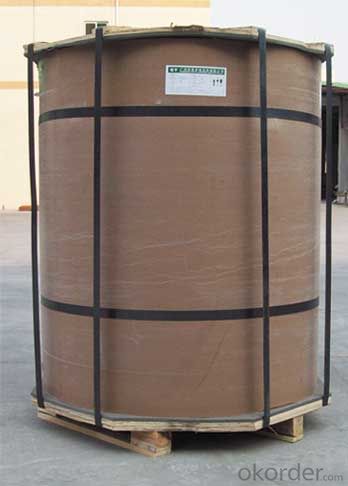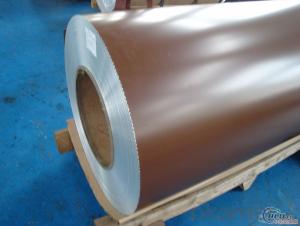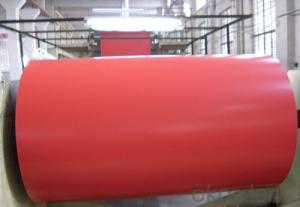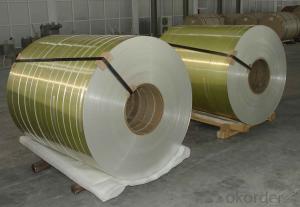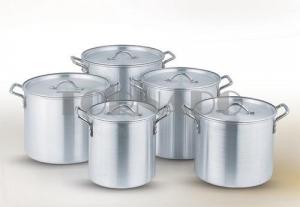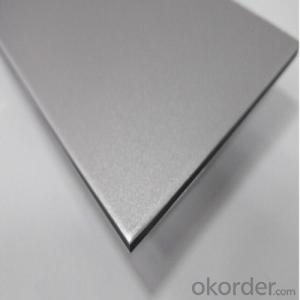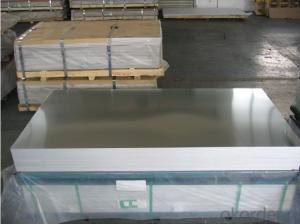Anodized Aluminum Sheets - Domestic Color Coated Aluminium Coils for Wall Curtain
- Loading Port:
- Shanghai
- Payment Terms:
- TT OR LC
- Min Order Qty:
- 5 m.t.
- Supply Capability:
- 50000 m.t./month
OKorder Service Pledge
OKorder Financial Service
You Might Also Like
Specification
1.Structure of Domestic Color Coated Aluminium Coils for Wall Curtain
Domestic Color Coated Aluminium Coils for Wall Curtain for Composite Panel is one semi-finished aluminium material. This strip can be rolled down to aluminium coil,sheet,circle ect. The alloy AA1050 is widly used in building, industry ect. Its weight is much lower than steel. So many customers choosed aluminium material instead of steel.
2. Main features of Domestic Color Coated Aluminium Coils for Wall Curtain
a.Competitive price---We have our own mills and can produce mill finished aluminium coils, so we can control the production cost better.
b.Professional after-sale service---We have more than 15 years exportation experience and you need not worry about the exporation problems.
c.Fast delivery time---We can control the delivery time within 35 days.
3. Image
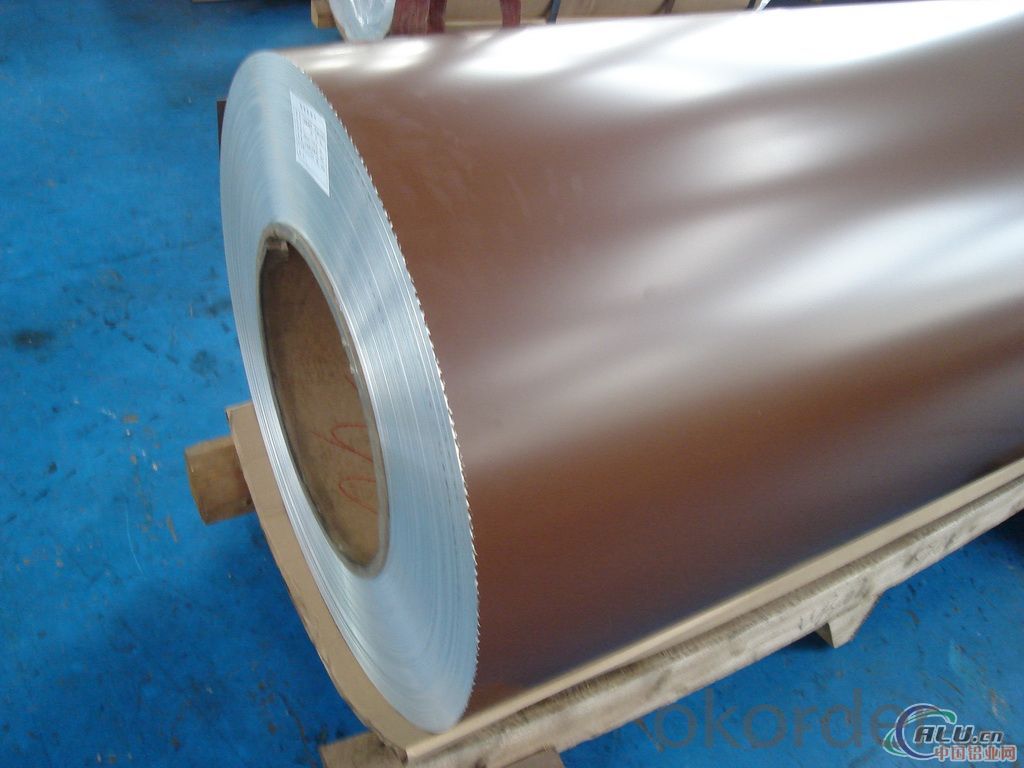
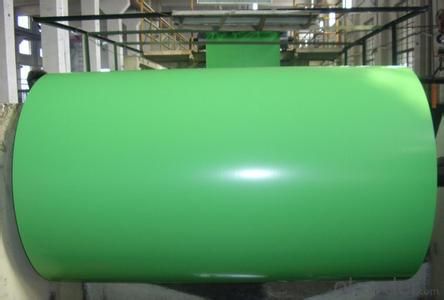
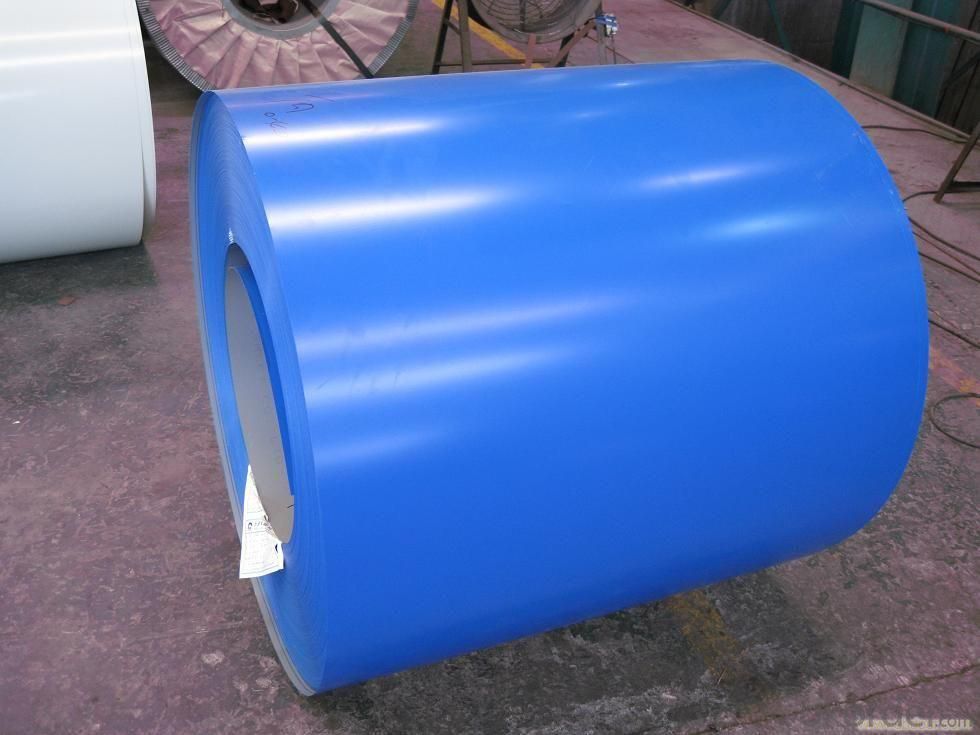
4. Product Specification of Domestic Color Coated Aluminium Coils for Wall Curtain
| Alloy | Temper | Thickness | Width | Weight |
| AA3003 | H14 | 0.2MM-3MM | 1000MM-1800MM | 2 TONS |
5.FAQ:
What is the quality standard?
---Usually our standard is GB3880-2006
What is the largest width?
---It is 2300mm
What is the MOQ?
---Usually we can accept 80 tons.
- Q: Can 101 aluminum sheets be bent or formed into different shapes?
- Yes, 101 aluminum sheets can be bent or formed into different shapes. Aluminum is a highly malleable material, which means it can be easily shaped without breaking or cracking. The specific grade of aluminum, in this case, 101, refers to the alloy composition and may have certain properties that make it more suitable for bending and forming. However, the ability to bend or form aluminum sheets also depends on their thickness, as thicker sheets may require more force and specialized equipment. Overall, with the right tools and techniques, it is possible to bend or form 101 aluminum sheets into a variety of shapes to meet specific requirements.
- Q: How much is the price of the 6061 aluminum plate?
- You ask the question is not detailed enough, because 6061 aluminum thick and thin prices are different, domestic and imported prices are different, domestic quality of different prices are also different.
- Q: Can aluminum sheets be custom cut to specific sizes?
- Yes, aluminum sheets can be custom cut to specific sizes. Aluminum is a highly versatile material that can easily be cut and shaped to meet specific requirements. With the right tools and equipment, aluminum sheets can be accurately cut to any desired size, whether it's for industrial, commercial, or personal use. This flexibility allows for the customization of aluminum sheets to fit specific applications, making it a popular choice in various industries such as construction, automotive, and aerospace. Whether you need small or large aluminum sheets, they can be easily cut to the exact dimensions you require, ensuring a precise fit for your specific project or application.
- Q: This question asks for methods to ensure that the connections between aluminum sheets are both secure and resistant to water leakage.
- <p>To ensure that the joints between aluminum sheets are secure and watertight, use a combination of sealants and appropriate fasteners. First, clean the surfaces to be joined thoroughly. Apply a high-quality, waterproof sealant along the joint. This sealant should be compatible with aluminum and resistant to UV, temperature changes, and water. Then, use corrosion-resistant fasteners such as stainless steel screws or rivets to join the sheets. Ensure that the fasteners are tightened correctly to prevent leaks. Additionally, consider using a gasket or a weatherstrip along the joint for added watertightness. Regularly inspect and maintain the joints to ensure ongoing watertight integrity.</p>
- Q: What are the different methods of surface treatment for adhesive bonding of aluminum sheet?
- There are several methods of surface treatment for adhesive bonding of aluminum sheet, including mechanical cleaning, chemical cleaning, anodizing, and conversion coating. Mechanical cleaning involves removing dirt, grease, and oxide layers through methods such as sanding, grinding, or brushing. Chemical cleaning uses solvents or detergents to remove contaminants and prepare the surface for bonding. Anodizing forms a protective oxide layer on the aluminum surface, enhancing its resistance to corrosion and improving bond strength. Conversion coating involves applying a chemical treatment to create a thin layer of metal oxide or phosphate, which promotes adhesion between the adhesive and aluminum.
- Q: What is the weight of aluminum sheets per square foot?
- The weight per square foot of aluminum sheets may differ depending on the sheet's thickness or gauge. Typically, a 1/8 inch thick aluminum sheet weighs approximately 1.9 pounds per square foot. Nevertheless, thinner sheets tend to be lighter, whereas thicker sheets can be heavier. It is crucial to take into account the precise thickness of the aluminum sheet when calculating its weight per square foot.
- Q: What are aluminum sheets?
- Aluminum sheets, commonly found in various industries and applications, are thin and flat pieces of aluminum. Aluminum, a lightweight and versatile metal, is known for its exceptional strength, durability, and corrosion resistance, from which these sheets are made. Depending on the project's specific requirements, the thickness, width, and length of these sheets can vary. Construction, automotive, aerospace, packaging, and manufacturing industries, among others, widely employ aluminum sheets. They serve various purposes, including roofing, cladding, signage, transportation, electrical enclosures, and even household utensils. Aluminum's flexibility and malleability make it a popular choice for a wide range of applications, as it can be easily shaped and formed. Furthermore, aluminum sheets can be coated or finished, enhancing their appearance and protecting them from external factors like moisture, UV rays, or chemicals. In summary, aluminum sheets are indispensable materials that offer a combination of lightweight, strength, and corrosion resistance, making them ideal for industrial and commercial uses.
- Q: What is the cost of aluminum sheets compared to other materials?
- The cost of aluminum sheets is typically lower compared to other materials such as steel or titanium.
- Q: This question asks about the various surface treatments or finishes that can be applied to custom-made aluminum sheets.
- <p>Custom-made aluminum sheets can be finished in a variety of ways to achieve different aesthetic and functional properties. Some of the common finishes include: Anodizing, which provides a protective oxide layer and can be colored; Powder coating, offering a durable and colorful finish; Mill finish, which is the natural surface of the aluminum after rolling; Brushed or Satin finish, giving a鍝戝厜 texture; Mirror finish, providing a reflective, polished surface; and Painted finish, where the aluminum is coated with a layer of paint for color and protection. Each finish serves different purposes, from enhancing corrosion resistance to improving the visual appeal of the aluminum sheet.</p>
- Q: 5052 aluminum plate and LY12 aluminum plate is the same?
- The 5052 series is aluminum magnesium alloy, the magnesium alloy belongs to the lower density alloy, the 5052 alloy aluminum plate density is 2.68LY1, LY2, LY4, LY6 series for nickel chromium alloy, is a hard aluminum density 2.76
Send your message to us
Anodized Aluminum Sheets - Domestic Color Coated Aluminium Coils for Wall Curtain
- Loading Port:
- Shanghai
- Payment Terms:
- TT OR LC
- Min Order Qty:
- 5 m.t.
- Supply Capability:
- 50000 m.t./month
OKorder Service Pledge
OKorder Financial Service
Similar products
Hot products
Hot Searches
Related keywords
